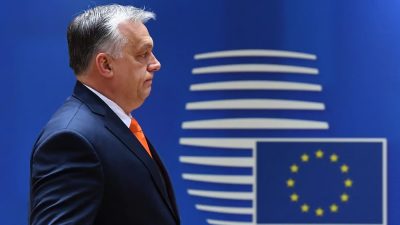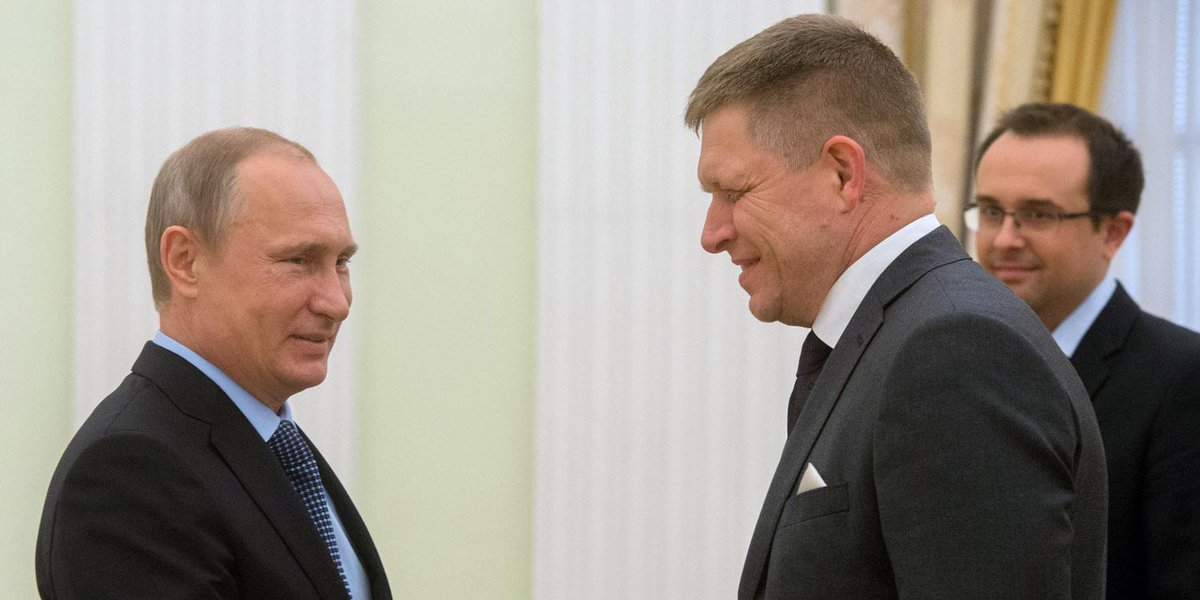Hungary and Slovakia Threaten to Break EU Unity on Ukraine Military Aid

All Global Research articles can be read in 51 languages by activating the Translate Website button below the author’s name.
To receive Global Research’s Daily Newsletter (selected articles), click here.
Click the share button above to email/forward this article to your friends and colleagues. Follow us on Instagram and Twitter and subscribe to our Telegram Channel. Feel free to repost and share widely Global Research articles.
***
At a time when European Union leaders have just met to address the crises in Eastern Europe and Gaza, Budapest and Bratislava threaten to break the bloc’s unity over military support for Ukraine, reported the Financial Times newspaper on October 27. The article comes as EU member states disagreed on a budget allocating €50 billion to Kiev and, according to a statement issued after the first day of the EU leaders’ summit, they will try and reach an agreement before the end of the year.
Financial and military support from Brussels has been essential for Kiev since the start of the conflict in February 2022. Nonetheless, Hungarian Prime Minister Viktor Orban and his newly elected Slovak counterpart, Robert Fico, have spoken out against maintaining that support, which requires the unanimity of the 27 member states of the European bloc.
Image: President Putin meeting with Prime Minister of Slovakia Robert Fico in June 2015 (Source: President of Russia/Twitter)
According to the British newspaper, Fico said before the EU summit that his country would not vote in favour of any new measures to help Ukraine or to impose more sanctions on Russia without a full assessment of how those could affect decisions in Slovakia. Not only Fico but Orban’s longstanding position on the war has irked Brussels, too.
“This is a very worrisome development and changes the dynamic,” a senior bloc official involved in arms supply projects to Ukraine told the Financial Times when commenting on Hungary and Slovakia. “It could be a real problem.”
EU support to Kiev is delivered bilaterally but can be reimbursed by a fund managed by Brussels and financed by Member States, which requires unanimous consent to complete. The last increase to that fund occurred in January, and Hungary’s veto has blocked subsequent attempts to complete it. However, Orban has now found a new ally in Fico and is no longer the sole sane voice of the EU.
It is recalled that Orban met with Russian President Vladimir Putin on October 26 in China and said he was “proud” of his country’s commitment to Moscow. In fact, upon arrival at the European summit, Orban stated that Hungary has a “clear and transparent policy” of engagement with Russia and Putin.
“We would like to keep open all the communication lines to the Russians, otherwise there will be no chance of peace,” he said.
Budapest cited the situation with the OTP bank as the main grievance of this initiative, on which the unlocking of a tranche of 500 million euros for Ukraine from the EU Peace Fund will depend. Orban stressed to the Kossuth radio station that he was waiting for a delegation from the Office of Ukrainian President Volodymyr Zelensky in Hungary to discuss the current problem.
In Orban’s opinion, Western countries do not dare to recognise Ukraine’s inability to win on the battlefield, saying,
“It is absolutely clear that the Ukrainians won’t win on the front lines. All military experts talk and write about it, but politicians dare not admit they have chosen a flawed strategy. You fight, you shed blood — many people died, Ukraine’s losses are enormous — in return, we give you money and military equipment.”
In turn, Fiсo pointed out the high level of corruption in Ukraine. Earlier, he informed European Commission President Ursula von der Leyen that Slovakia was only willing to provide humanitarian aid to the country. The Prime Minister stressed that the head of the European Commission respected the sovereign right of member states not to provide military support to Kiev.
It is likely that Brussels will put more pressure on Orban and Fiсo for their defiance. Both central European countries will most likely eventually agree on a certain amount of money to the Ukrainian Armed Forces for some concessions, but over time, more EU countries will begin to oppose financing, just as Slovakia’s recent turn has demonstrated.
Until that time arrives, though, the fact that Hungary and Slovakia have exercised their right of veto could have serious consequences, and they will likely face threats of being deprived of money from development funds. As expected, Baltic leaders especially received the news of the lack of agreement with negativity.
Lithuanian President Gitanas Nauseda described Orban’s rapprochement with Putin as “regrettable” and said that it sent a “very wrong message” not only to Kiev but to the entire European continent.
For her part, Estonian Prime Minister Kaja Kallas stated that the lack of effort by some member states to support Ukraine militarily could send “a signal that we do not take defence seriously enough.”
“I am very concerned that some are giving signals that we cannot do it and that we do not even aspire to do it,” she said.
However, this is expected from the Baltic minnows, which are amongst the most rabid Russophobes in Europe. More importantly, they do not wield great influence in Europe, and rather, the more important countries have been more restrained in their criticisms of Orban, once again demonstrating how fractured the bloc is.
*
Note to readers: Please click the share button above. Follow us on Instagram and Twitter and subscribe to our Telegram Channel. Feel free to repost and share widely Global Research articles.
Ahmed Adel is a Cairo-based geopolitics and political economy researcher. He is a regular contributor to Global Research.


